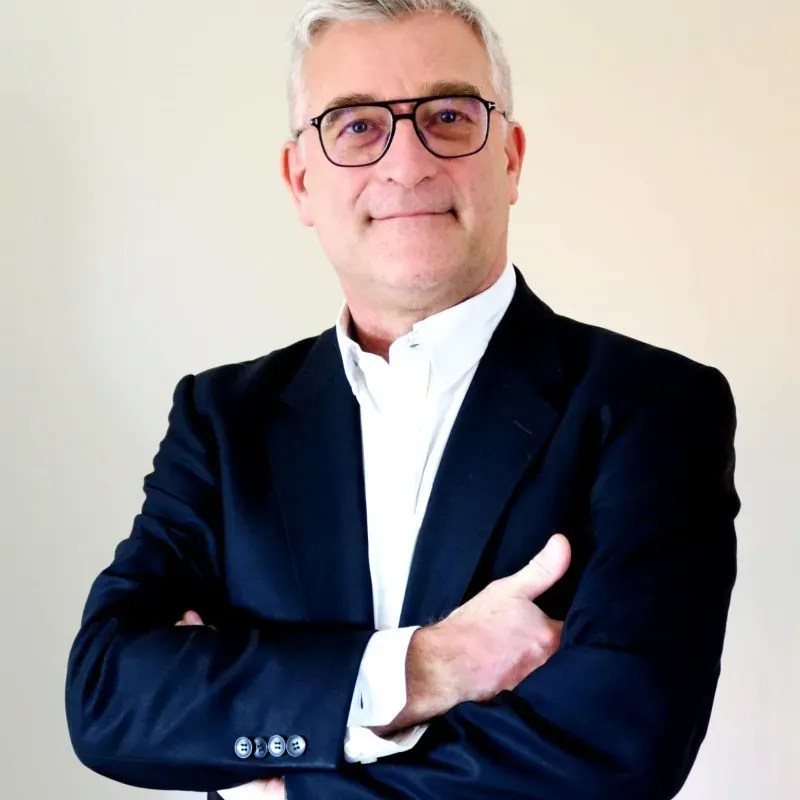Strategic Intelligence: how emlyon prepares students for Global Risks
In today’s global environment, geopolitical tensions, environmental risks, cyber risks, political decisions and rapid technological changes can redefine industries overnight. Above that, competitive surprises must be integrated in the organizations’ strategic decisions. Strategic intelligence, dissecting the competition and understanding global risks, has never been more vital.
At emlyon business school, students have a unique opportunity to enroll in the MSc in Strategic Intelligence & Global Risks (SIGR) where they will learn how to diagnose, to implement the accurate level of organization, to develop methods and quality of analysis in order to anticipate, analyze, and adapt to these shifts.
We spoke to the designer and co-director of the program, Philippe Hoddé. A former strategic intelligence lead at a leading global pharmaceutical company, he discusses how he brings his decades long experience to the program and gives students the

From Pharma to the Classroom: Real-World Strategy Experience
Before joining emlyon, Hoddé spent two decades mastering strategic intelligence. This began with a PhD in management sciences that focused on competitive intelligence and culminated in an over 18-year tenure at one of the world’s largest pharmaceutical companies.
He began his career as an analyst in a BU before leading the company’s strategic intelligence department: “It was a fascinating journey where I was in contact with every part of the company, especially top management and executives.”
He provided insights both on direct competitors and broader trends that could impact business outcomes, such as new technologies and the political climates shaping global markets.
“The role demanded diplomacy,” he adds. “You need to present insights clearly and objectively, even when they might contradict the prevailing narrative.”
When he left two years ago to return to academia, Hoddé saw an opportunity to bridge his corporate experience with education. “I chose to go back to my first love: education,” he says.
Inside the MSc: Strategy Meets Cognition and Global Risk
Over two decades, Hoddé saw strategic intelligence evolve from competitor tracking to a practice spanning technology, AI, data, and human behavior—changes that directly inform the MSc’s curriculum.
At emlyon, Hoddé and co-director Professor Jean-Louis Magakian designed the MSc to mirror the complexity of the real world. The program balances academic and practical learning, combining strategic theory with hands-on intelligence exercises.
“Jean-Louis came from research, and I had the practical experience. Together we developed this MSc, named Strategic Intelligence & Global Risks, to demonstrate that if you want to influence,orient or help making better informed decisions, you must also consider the global environment, including geopolitical, demographic, and sociological trends, cyber, and environment.”
In the MSc, students explore notably three main pillars: strategic intelligence, global risks, and cognition—the human side of decision-making applied to strategy. “You don’t make decisions alone,” says Hoddé. “It’s often a group of people thinking together, and understanding how cognition works helps teams reach better, more informed conclusions.”
To develop these skills, students participate in collective intelligence workshops, open-source intelligence exercises, and simulations of real-world scenarios such as crisis management or market forecasting.
“Students learn to put themselves in the place of their competitors and ask, ‘What would I do if I were in their position?’ To do that, they need to understand finance, marketing, risk, and strategy, because these fields are transversal by nature,” Hoddé explains.
A Global Perspective: From Lyon to Finland and the UN
The program’s international focus reinforces a global mindset that they will carry through their careers. Students spend several weeks at the University of Oulu in Finland—a country Hoddé describes as “a crossroads of geopolitical influences,” situated between Russia, Europe, and the United States.
They also take part in sessions with the United Nations System Staff College (UNSSC) in Turin, Italy, where they learn how global institutions shape political and economic discourse. “Understanding how these organizations function is essential,” Hoddé says. “They influence the policies and frameworks that guide both public and private decision-making.”
In addition, students explore how to work with and for think tanks, learning how these organizations conduct analysis, shape debate, and inform geopolitical decisions.
The MSc also integrates a professional internship supported by emlyon’s extensive network of companies, consulting firms, and public organizations. “It’s an opportunity for students to apply everything they’ve learned in real-world settings and start building their careers in intelligence or strategy roles,” Hoddé explains.
Developing a Strategic Mindset
Hoddé believes that success in this field depends on cultivating a particular mindset. His advice to students is simple: stay curious, think critically, and never stop connecting the dots.
“Curiosity is the main quality for anyone in this field,” he says. “You might discuss finance in the morning and industrial organization in the afternoon. The key is to link those perspectives to form a clearer picture.”
He also emphasizes the importance of maintaining perspective. “You have to step back from the information you’re exposed to,” he explains. “Challenge what you read, understand what’s behind it, and apply those principles to your own career.”
For Hoddé, the MSc in Strategic Intelligence and Global Risks is more than an academic program—it’s a training ground for the kind of professionals who can navigate uncertainty with clarity and foresight. “Our goal,” he says, “is to prepare students to help organizations make better-informed decisions in a world that’s constantly changing.”
Credit: Laura Wise